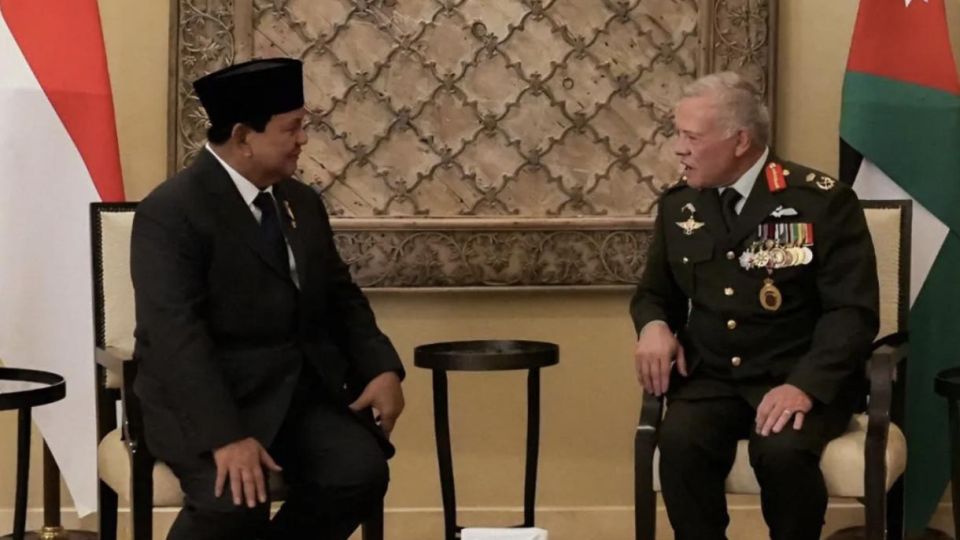June 13, 2024
JAKARTA – On behalf of President Joko “Jokowi” Widodo, Defense Minister Prabowo Subianto attended the “Call for Action: Urgent Humanitarian Response for Gaza” conference in Jordan near the Dead Sea on Monday, where he proposed bringing a certain number of Palestinians war victims to Indonesia for treatment and deploying Indonesian peacekeeping forces to the Gaza Strip.
Regardless of their ultimate feasibility, the two action plans are more productive than repeated condemnations of Israel for its assault on Gaza, which has claimed more than 37,000 lives, mostly civilians. Indonesia has been a consistent supporter of Palestinian independence and the two-state solution as the best option to end the decades-long conflict in Middle East.
President-elect Prabowo, who will replace Jokowi in October, should combine his two proposals with large-scale diplomatic efforts in collaboration with other developing countries. As a leading member of the Group of 77, which gathers 130 developing countries, Indonesia needs to bring about a new initiative to encourage more countries, especially from the developed world, to recognize Palestine as an independent state.
Earlier this year, 146 of the 193 members of the United Nations General Assembly voted in favor of Palestine joining the UN, indicating remarkable progress toward the world’s acceptance of a sovereign Palestinian state.
This week’s conference, cohosted by King Abdullah, Egyptian President Abdel Fattah Al Sisi and UN Secretary-General António Guterres, aimed to identify ways to step up the international community’s response to the humanitarian catastrophe in Gaza.
On the eve of the conference, the UN Security Council overwhelmingly approved its first resolution endorsing a three-step ceasefire plan aimed at ending the Gaza war, which has been dragging on since Hamas launched a deadly attack on Israel on Oct. 7, 2023.
However, the international community is doubting whether the resolution will be any more effective than the three previous ones, which were all ignored by Israeli Prime Minister Benjamin Netanyahu.
Prabowo’s proposals, meanwhile, will face an uphill battle to materialize. It is impossible to find quick solutions to such a complicated conflict, which has lasted for over seven decades.
Jakarta, or Prabowo for that matter, may wish to treat about 1,000 Palestinians at Indonesian hospitals. However, the war victims will naturally prefer nearby Arab countries or the West.
And when it comes to the deployment of Indonesian peacekeeping forces when a permanent peace deal is struck, Israel will oppose such a plan because the two countries have no diplomatic relationship.
Indonesia has a solid reputation because it has been involved in UN peacekeeping operations for decades. The problem is that even if the UNSC gives Indonesia the green light, the warring parties – Israel and Hamas – have to approve Indonesian blue berets’ presence in Gaza.
During the Shangri-La Dialogue in Singapore on June 1, Prabowo said Indonesia was prepared to contribute “significant peacekeeping forces” to the UN to “maintain and monitor” any prospective peace processes in the conflict zone. He added that Indonesia was ready to “evacuate, receive and treat with medical care up to 1,000 patients from Gaza”.
Foreign Minister Retno LP Marsudi has acknowledged that preparations and coordination for the possible treatment of Palestinian evacuees have begun, though she admitted such a plan would “take a long time”, considering the complexity of the situation, including the difficulty of evacuating people from Gaza.
Prabowo’s Gaza initiatives indicate the incoming administration’s intention to get actively involved in global efforts to maintain peace and security. This will help bolster Indonesia’s international standing as one of the world’s most populous Muslim nations, which some big powers have ignored for a long time.
As a middle power, Indonesia under Prabowo stands a good chance of contributing to the world’s bid to create permanent peace in Palestine and beyond.


